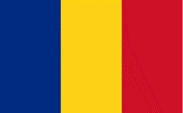The Turing Award, often referred to as the “Nobel Prize of Computing,” stands as a prestigious recognition for individuals who have contributed “lasting and major” technical achievements to the computing community. Established in 1966 by the Association for Computing Machinery (ACM), the award is named after Alan Turing, the British mathematician and logician who played a pivotal role in the development of computer science and artificial intelligence. This article delves into the history of the Turing Award, highlights some of its most revolutionary ideas, and profiles several eminent awardees.
Origins and Significance. The Turing Award was created to recognize contributions of a technical nature made to the computing community. The award is accompanied by a prize, initially funded by contributions from various computer companies like IBM and Intel. Over the years, the prize amount has increased significantly, reflecting the growing prestige and impact of the award. As of 2014, Google sponsors the award, which currently includes a $1 million prize.
Landmark Contributions. The Turing Award has lauded groundbreaking advancements across various domains of computer science. Here are a few highlights:
- Donald Knuth (1974): Honored for his comprehensive series of books, “The Art of Computer Programming,” Knuth’s work has been instrumental in establishing the systematic analysis of algorithmic efficiency and has influenced all aspects of computer programming.
- Edsger W. Dijkstra (1972): Best known for his shortest path algorithm, Dijkstra’s award was a nod to his broad influence on the philosophy and teaching methods in computer programming.
- Tim Berners-Lee (2016): Recognized for inventing the World Wide Web, Berners-Lee’s creation of a scalable, accessible, and easy-to-use internet has fundamentally transformed global communication and information sharing.
- John L. Hennessy and David A. Patterson (2017): This duo was awarded for their work on computer architecture, specifically for their approach to system design and their introduction of an efficient RISC (Reduced Instruction Set Computing) architecture.
- Jeffrey Ullman and Alfred Aho (2020): Awarded for their seminal work in algorithm design and compiler construction, their contributions are fundamental to modern programming practice and have influenced a wide array of other computing areas.
Notable Awardees. The Turing Award has recognized many brilliant minds whose work has had profound impacts on the tech industry and the world:
- Alan Kay (2003): Celebrated for pioneering object-oriented programming and developing the concept of the graphical user interface (GUI), Kay’s innovations are foundational to the modern computing experience.
- Leslie Lamport (2013): His work on distributed systems has made significant contributions to the reliability and consistency of networked systems, influencing how data is stored, retrieved, and synchronized across different servers.
- Yoshua Bengio, Geoffrey Hinton, and Yann LeCun (2018): Known as the “Godfathers of AI,” they were jointly awarded for their work on deep learning. Their research on neural networks has been pivotal in the development of AI applications, ranging from speech recognition to autonomous driving.
Conclusion. The Turing Award not only celebrates these monumental contributions but also stimulates ongoing innovation in computer science by inspiring professionals and students. Each recipient’s work provides a foundation upon which new technologies and methodologies are built, demonstrating the dynamic and ever-evolving nature of the field. As technology continues to advance, the Turing Award will undoubtedly play a critical role in highlighting the brightest ideas and minds that push the boundaries of what is possible in computing.
(Article
generated and adapted by CorpQuants with ChatGPT)



